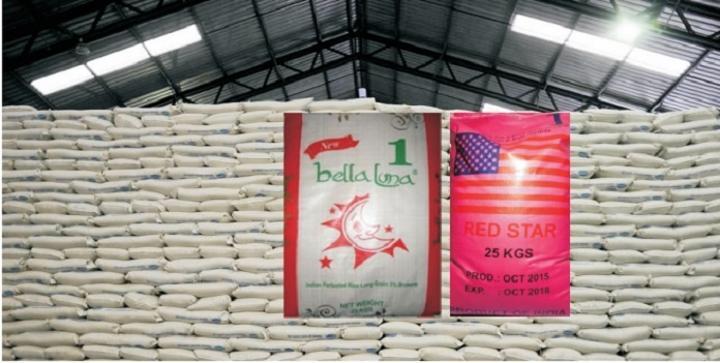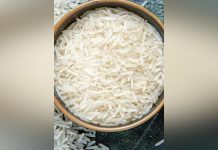Africa-Press – Liberia. A True Son of Liberia, Africa, and the Planet Earth:
The Political Socio-Economic of Rice in Liberia:
In Liberia, rice is not merely a consumable commodity, but it lies at the heart of the nation’s soul, dictating the ebb and flow of its socio-economic tides and political undercurrents
The grains that fill the bowls of Liberians daily are much more than a meal.
It is a historical and political artifact, interwoven with the nation’s tumultuous historical narrative.
The economic politics of rice price increases in Liberia are a sensitive matter, a tightrope that policymakers walk with trepidation.
History has starkly demonstrated how the volatility of rice prices can shape the destiny of politicians and, in the most tragic of instances, claim their lives.
This adda explores the socio-economic and political dynamics surrounding rice in Liberia and why it is a subject that, when mishandled, can tarnish reputations and trigger widespread discontent.
[bsa_pro_ad_space id=1]
Historical Context:
Rice, a staple food essential to the sustenance of the Liberian populace, has proven to be a deciding factor in the political stability of the nation.
As a little child in 1979, if my recollections can serve me well, its significance dates back to 1979 when a proposed increase in the price of rice set the stage for the infamous Rice Riots in Monrovia.
This culminated in the consequential coup d’état of 1980, toppling the True Whig Party’s century-old governance and resulting in the grisly assassination of the sitting president, William R. Tolbert Jr.
This dark chapter etched a haunting reminder in the nation’s memory.
The politics of rice holds a potentially lethal edge, one that can sever the life thread of not only the highest office in the land but also spark civil unrest that takes the lives of ordinary citizens.
The Economic Implications:
Rice price fluctuation can profoundly influence the economic environment.
As the main dietary staple, rice accounts for a significant portion of the average Liberian household’s spending.
Economic theory dictates that when the price of an essential good increases, it leads to a decrease in the real income of consumers, particularly affecting those in lower socio-economic brackets.
In Liberia, where a large contingent of the population struggles with poverty, hikes in rice prices can escalate living costs, aggravate food insecurity, and fuel inflationary pressures.
Thus, the economic politics of increasing rice prices is inherently tied to the welfare of millions.
The Political Ramifications:
Politically, the manipulation or even mere neglect of rice prices can lead to dire consequences.
Given its historical importance and centrality to the Liberian way of life, rice is a political hot potato.
Government actions that lead to price surges can be seen as direct attacks on the livelihoods of the citizenry.
When the masses find themselves unable to afford their basic meals, political unrest can swiftly follow as the people look to their leaders for answers and relief.
It is a challenge that has been met with variegated strategies, from subsidization to import restrictions and domestic production incentives, all with mixed results and political aftershocks.
Economic Policies and Rice:
The economic policies surrounding rice in Liberia have often centered around balancing imports with local production.
Despite the country’s favorable agricultural environment, domestic production of rice has historically failed to meet demand, leading to a reliance on imports.
The argument stands that the increase in rice prices emanates from multifaceted issues, including tariffs, global market volatility, and inefficient agricultural practices.
The solution proposed by some is a heavier investment in domestic rice production, to shift from dependence on imports and stabilize prices.
However, detractors argue that the immediate needs of the people can not wait for the long-term maturation of local industries, making imports a necessary evil in the interim.
The Social Dimension:
At the root of the rice controversy lies a deep-seated social component.
The affordability of rice cuts across all strata of the Liberian populace, impacting everyone from the urban elite to rural farmers.
It transcends ethnic and political lines, uniting the country in a common cause, the provision of this indispensable sustenance.
Increases in rice prices serve not only as a bellwether for public dissatisfaction but also as a trigger for societal stress, fracturing the delicate social fabric with the potential for inner and class-related tensions.
Towards Sustainable Solutions:
To navigate the precarious nature of rice politics, Liberia must invest in sustainable solutions that address both immediate and long-term needs.
Establishing robust agricultural policies, investing in technology and infrastructure to support local farmers, and instituting educational programs on improved farming techniques stand as pillars for fostering self-sufficiency in rice production.
Furthermore, creating strategic reserves, opening the rice market to very serious investors, and implementing price controls could serve to cushion the blow of market fluctuations, preserving social and economic stability.
These solutions demand a cooperative effort among government, private sector, and international partners, leveraged with the understanding that rice politics is an emblematic issue with historical sensitivity and present-day urgency.
The socio-economic politics of rice price increases in Liberia are fraught with complexities and pitfalls.
As we have seen, the life of a sitting president and the lives of thousands of Liberians have been irrevocably intertwined with rice, making it a symbol of national unity as well as a point of contact.
In this volatile arena, leaders must tread with wisdom and foresight, cognizant that their decisions may not only define their political careers but also shape the well-being of an entire nation.
Rice politics in Liberia teaches a cautionary tale, one where the granules of economic policy can tip the scales of public opinion and national stability.
It is a matter where unease accompanies the risks of making one, many, or any Liberian a public enemy, pushing policymakers to seek prudent, inclusive, and sustainable paths forward.
The rice fields and markets of Liberia will continue to whisper tales of the past and warnings for the future, ever reminding that here, every grain weighs heavy with consequences.
Former Agriculture Minister the late Mrs. Chenoweth, if she was still around, could attest.
May her soul rest in peace.
Source: Liberia news The New Dawn Liberia
For More News And Analysis About Liberia Follow Africa-Press






